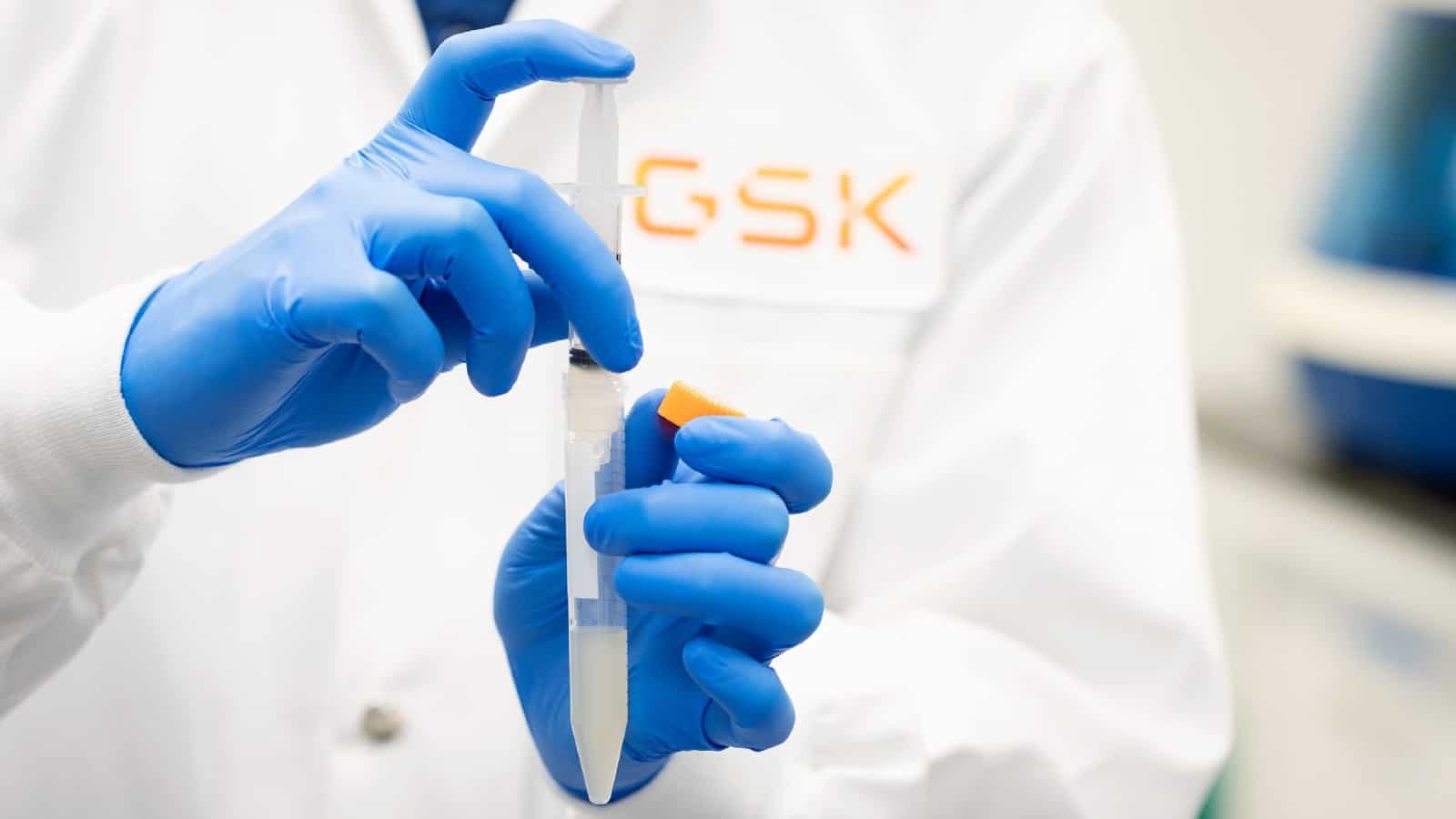Down 18% since September, is it time for me to capitalise on GSK’s bargain-basement share price?


GSKâs (LSE: GSK) share price has lost 18% since its 10 September traded high of £16.67.
This could mean a major bargain to be had. Or it could signal that the underlying business is simply worth less than it was before.
I re-examined the business and ran some key numbers to find out which is true here.
The underlying business
The powerhouse of any firmâs share price (and dividends) is its earnings growth. A risk to these for GSK is any failure in any of its key products. This could damage its reputation and be costly to remedy.
A recent example of this has been litigation relating to its Zantac drug. That said, the company agreed last October to pay $2.2bn to resolve 93% of the relevant cases in the US. Nonetheless, a risk of further legal action remains.
However, consensus analystsâ forecasts are that the firmâs earnings will grow by an extremely robust 14.9% a year to end-2027.
This looks well supported to me by recent results. Its 2024, annual numbers showed total sales rise 7% year on year to £31.376bn. Operating profit increased 11% to £9.148bn, while earnings per share (EPS) climbed 10% to 159.3p. Â
Given these figures, the firm raised its 2025 sales growth target to 5% against analystsâ previous expectations of 3.5%. It also lifted its 2031 sales target to £40bn+ from £38bn+.
The first quarter of this year saw total sales rise 4% year on year to £7.516bn. This was ahead of consensus analystsâ forecasts for £7.42bn. Operating profit surged 50% to £2.216bn, and earnings per share jumped 56% to 39.7p.
And cash generated from operations rose 16% to £1.301bn, which itself can be a major engine for growth.
New products in the pipeline
GSK expects 14 key drug developments between now and 2031 with each having peak annual sales potential of £2bn+.
This year, it anticipates five new approvals from the US Food and Drug Administration. Already approved are the Penmenvy meningitis vaccine and Blujepa antibiotic for urinary tract infections. Further authorisations are expected this year for its Nucala COPD treatment, Blennrep multiple melanoma drug, and Depemokimab asthma treatment.
Positive to me as well is that Q4 2024âs 1.15bn acquisition of US biotech firm IDRx has now been completed. This marks a strategic shift by GSK towards gastrointestinal cancers to further compensate for a declining vaccines business.
Also promising, I think, is a new partnership with ABL Bio and a large-scale research collaboration with the UK Dementia Research Institute and Health Data Research UK. The former is focused on advances in combating neurodegenerative diseases, while the latter is looking at the prevention of dementia. Â
So are the shares a bargain?
I believe that the best method of establishing any stockâs fair value is discounted cash flow analysis. This uses cash flow forecasts for a firmâs underlying business to pinpoint the price at which its shares should trade.
The DCF for GSK shows its shares are a whopping 69% undervalued at their current price of £13.72. Therefore, their fair value is £44.26.
This is a huge bargain, in my book, on which I will be capitalising by buying more of the shares very soon.
The post Down 18% since September, is it time for me to capitalise on GSKâs bargain-basement share price? appeared first on The Motley Fool UK.
More reading
- The FTSE 100 sits at a record high. But some stocks still look dirt cheap!
- See what £10k invested in ailing GSK shares is worth todayâ¦
- What are the most common FTSE 100 shares top UK investors put into a Stocks and Shares ISA?
- Gold soaring, oil at risk, bonds irrational: what’s going on with the US stock market?
Simon Watkins has positions in GSK. The Motley Fool UK has recommended GSK. Views expressed on the companies mentioned in this article are those of the writer and therefore may differ from the official recommendations we make in our subscription services such as Share Advisor, Hidden Winners and Pro. Here at The Motley Fool we believe that considering a diverse range of insights makes us better investors.






